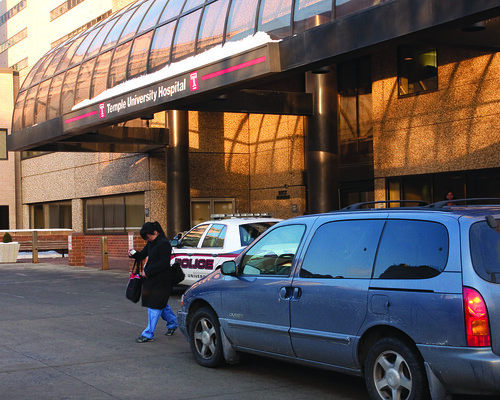A nonprofit organization’s new program is assisting cancer patients.
Getting cancer patients onto a path toward healing is a battle in itself, but one often overlooked struggle is getting patients onto the road and to the hospital for their treatments.
On Jan. 4, the nonprofit organization PhillyCarShare launched its new program, PhillyPatientRide, which links volunteers with cars to drive cancer patients to and from their hospital appointments.
PhillyCarShare Executive Director Gerald Furgione said approximately 20 percent of cancer patients’ appointments are missed because of insufficient means of transportation.
With help from the American Cancer Society and the support of Temple University Hospital, Hahnemann University Hospital, Thomas Jefferson University Hospital and the Hospital of the University of Pennsylvania, PhillyPatientRide is currently an eight-week trial.
PhillyCarShare, whose mission is to reduce Philadelphia’s carbon footprint, was founded in 2002 and connects members with automobiles, which are spread throughout the city. Furgione said PhillyPatientRide operates as PhillyCarShare normally would, sans the monetary fees.
With a fleet of more than 225 vehicles located in parking lots, high-rise garages and college campuses, PhillyCarShare allows members to make appointments for vehicles and gain access to specific cars near their location of choice Furgione said.

He said although the program is in its first few weeks, the idea for PhillyPatientRide has been in the works for some time now.
Furgione said he met with the American Cancer Society about two-and-a-half years ago when he learned about its Road to Recovery program, which also provides volunteer transportation for cancer patients.
“It seemed to be working well in the suburbs, but it wasn’t working in the city of Philadelphia,” Furgione said. “One of the things that they mentioned to me was that a lot of people were interested in volunteering and didn’t have their own cars.”
A committee eventually formed with members of the American Cancer Society and representatives from local hospitals to look into new ways to provide transportation for cancer patients in the city.
“When we started looking into this more and more, we found out that transportation is [a big] deterrent for people not making their appointments,” Furgione said. “Apparently the patients, really, after they receive their treatments, shouldn’t be driving … so they depend on other people to drive them.”
Furgione said the program has collected about $2,400 through the American Cancer Society and local hospitals to cover expenses such as gas and insurance during its current trial period. If successful, he said, the program would likely continue if enough money is collected.
“We think to continue it from March 1 through the end of December will probably cost us around $25,000,” Furgione said. “We feel if we can collect data and information about this, we should be able to take it out and find someone who might be interested in helping us.”
Jeanne Chavious, manager of patient services for oncology at TUH’s Cancer Center, said the program is already pursuing grants for the future.
Chavious, a member on the initial task force, said the program has identified many patients who have no means of attending their appointments, but the next step is recruiting additional volunteers.
“One of our goals is to see if we can identify volunteers,” Chavious said.
Chavious also identified students and retired persons as possible volunteers since day and nighttime flexibility is important.
“We’re still not there in terms of numbers of volunteers that we want, but it’s really starting to pick up,” Furgione said. “It takes about three hours of volunteering … we ask that they do it at least one time a month.”
Furgione said about 40 volunteers have already completed their orientation and are able to participate in the program. Volunteers must be 21 years old and complete an application, which includes a background check.
The program is currently being advertised through the mayor’s office, local churches, Craigslist and Greater Philadelphia Cares.
As for the people being served, Chavious said the cancer patients she deals with “have been very pleased that the drivers have been very pleasant and accommodating.”
“The first week we had 26 appointments,” Furgione said, adding that the second week had requests for about 50 appointments.
While the program is only in its beginning weeks, it’s one of the first of its kind, and Furgione said PhillyPatientRide is starting to gain momentum.
“This really hasn’t been done anywhere else in the United States, using volunteers and car-sharing vehicles,” Furgione said.
Angelo Fichera can be reached at afichera@temple.edu.


Be the first to comment